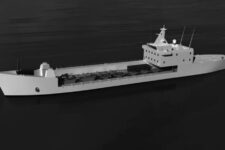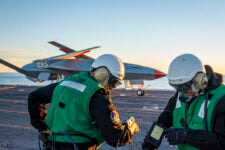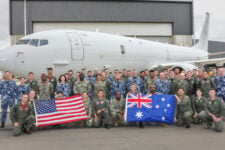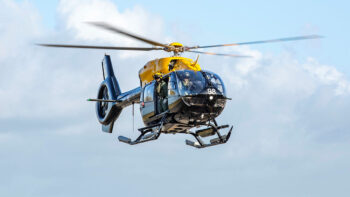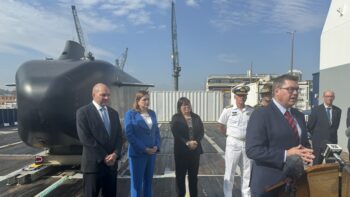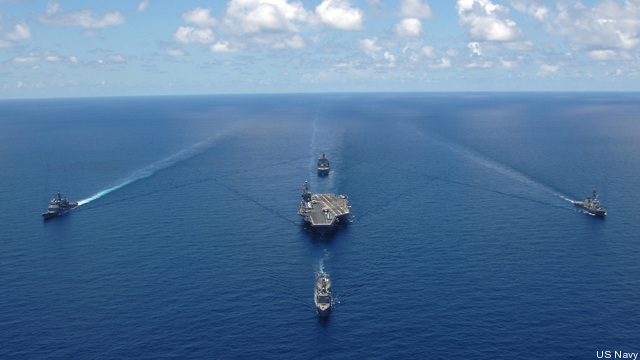
Ships assigned to the George Washington Carrier Strike group sail in formation during a multinational exercise in partnership with Caribbean and Latin American countries(U.S. Navy photo by Photographer’s Mate 3rd Class Christopher Stephens)
WASHINGTON: The Navy is briefing industry today about its plans to conduct a series of demonstrations next summer in conjunction with US Southern Command focused on experimenting with new technologies that could be used for interdicting illegal trafficking operations.
The exercises have been dubbed the SCOUT Experimentation Plan and are being spearheaded by the Office of Naval Research. A public Navy notice says the service is currently soliciting proposals from industry for unique technologies that could help address the problems the exercises are tackling. Proposals are due on Jan. 14, 2022.
“SCOUT will provide government and industry/academia participants a collaborative, low-risk environment to demonstrate technologies at the unique laboratories and ranges available across the [Navy’s research and development enterprise], while practicing operators and planners simultaneously explore advanced tactics and assess the operational relevance of emerging technologies,” according to the notice.
RELATED: Navy finds fix for ‘unacceptable’ LCS issue; taxpayers likely to cover half of costs
The four subject areas SCOUT is focused on include managing and analyzing multiple data streams, detecting and monitoring suspect vessels without the use of maritime patrol aircraft, efficient placement of surface assets for interdiction and “rapid, distributed logistics,” according to the public notice.
In an exclusive interview with Breaking Defense earlier this month, Chief of Naval Research Rear Adm. Lorin Selby said the service would also consider solutions designed during the service’s “Hack the Machine” event that took place last week. During the event, contestants were challenged to simulate a wide-area search scenario, acting as both a rogue actor evading Navy detection and as the service attempting to detect traffickers.
“These problems are also linked to naval key operational problems that the US Navy has identified as priorities for further development and investment. These key operational problems reflect Naval gaps and challenges aligned to multiple combatant and fleet commanders,” according to the notice.
RELATED: Another $25B boost, this time for shipyards, proposed for NDAA
For phase one, the government will work with selected vendors to understand the technical feasibility and maturity of their submissions. That phase will conclude with demonstrations at the main SCOUT experimentation event next summer.
The service will then select certain teams for a second phase that includes incorporating technologies into other exercises or rapidly fielding technology to the fleet.
Interdicting illegal narcotics is a longstanding mission for US Southern Command and one that lawmakers will often publicly urge Navy brass to pay more attention to during public congressional hearings.
Major trends and takeaways from the Defense Department’s Unfunded Priority Lists
Mark Cancian and Chris Park of CSIS break down what is in this year’s unfunded priority lists and what they say about the state of the US military.












